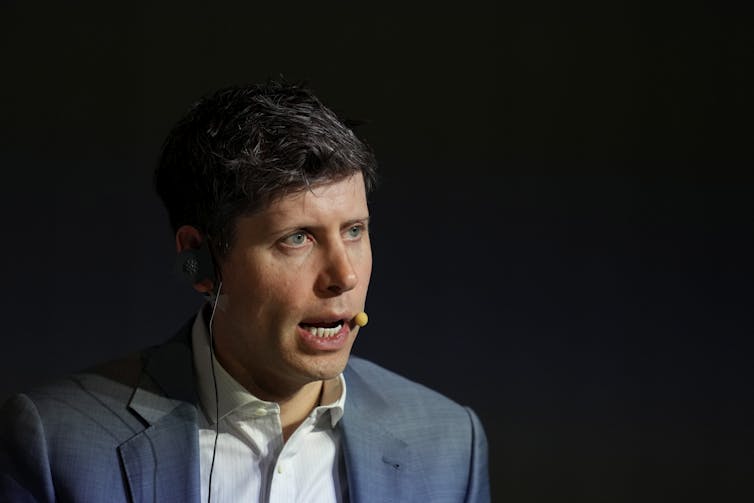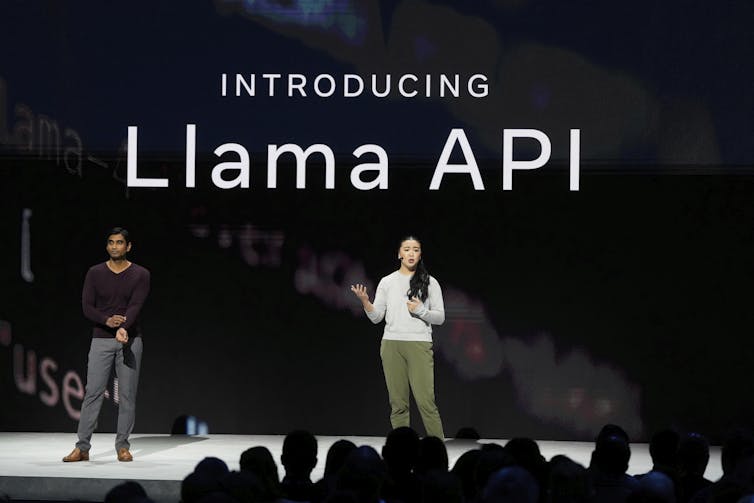Developer Offer
Try ImaginePro API with 50 Free Credits
Build and ship AI-powered visuals with Midjourney, Flux, and more — free credits refresh every month.
Why The Generative AI Business Model Is Failing
Amidst the frenzy of the generative AI gold rush, a critical question is often overlooked: what happens if the technology never lives up to its monumental hype? Scenarios where AI fails to meaningfully replace workers, companies struggle to implement it effectively, or the majority of AI startups simply go bust are rarely part of the conversation.
Current projections even suggest that major AI firms could face an $800 billion revenue shortfall. So far, the productivity boosts from generative AI have been relatively small, primarily benefiting niche roles like programmers and copywriters. While the technology offers some neat tricks, it is far from being the engine of a new economy. This reality doesn't align with the narrative AI companies are selling to fuel endless rounds of investment. But what if generative AI turns out to be commercially worthless? Perhaps that wouldn't be such a bad thing after all.
The Crushing Cost of Running AI
Free and low-cost AI services like ChatGPT and Gemini are incredibly expensive to operate, raising serious questions about how these companies will ever turn a profit. OpenAI CEO Sam Altman has been open about the immense operational costs, once joking that every polite 'please' or 'thank you' from ChatGPT costs the company millions. He has also admitted that even paid professional accounts are unprofitable due to the sheer computing power each query demands.

These firms are following the classic startup model: burn cash to acquire users with a product they can't resist. However, most tech giants succeeded by offering low-cost, addictive products funded by advertising. As companies pivot to find revenue, they risk what author Cory Doctorow calls "enshittification"—the gradual degradation of a platform as ads are crammed in to make up for losses. OpenAI is already exploring ads for ChatGPT, but it's uncertain if this model can cover the massive operational costs.
Copyright Lawsuits: AI's Billion-Dollar Headache
A growing problem for the AI industry is copyright. Major firms are either being sued for using training data without consent or are being forced into expensive licensing deals. Generative AI models have been trained on vast amounts of questionable data, including copyrighted books and scraped personal information. One model was even found to be able to recall 42% of the first Harry Potter book verbatim.
This legal minefield is creating a massive financial burden. For instance, the AI startup Anthropic attempted a $1.5 billion settlement with authors to license their books for training, a deal that was quickly rejected by the courts. With a valuation of $183 billion, Anthropic could see its worth quickly eroded by lawsuits. The end result is that these AI models are becoming toxic assets—useful, but too legally and financially encumbered to be truly valuable.
The Open-Source Challenge to Commercial AI
Another major threat to the commercial AI business model is the rise of free, open-source alternatives. Meta made a strategic move by releasing its Llama model as open source, allowing anyone with a powerful enough computer to run a capable AI for free. While these open models may not be as advanced as ChatGPT, they are often good enough for many users and businesses.

The disruption was highlighted when the Chinese firm DeepSeek released an open model that performed on par with leading commercial versions, temporarily tanking AI stock prices. While DeepSeek's motives are unclear, its success fuels skepticism about the high valuations of commercial AI companies. As free, high-quality alternatives become more common, it will be increasingly difficult for companies like OpenAI to justify their subscription fees.
What If AI Fails to Be Profitable?
The idea that generative AI could be commercially worthless stems from a fundamental paradox: its models are trained on the world's collective knowledge, a resource so vast its value is impossible to calculate. By attempting to capture and sell this knowledge, AI firms may have created products that are too indebted to humanity to be truly owned.
If these companies cannot generate sustainable profits, the outcome will be mixed. Creators hoping for large payouts from licensing deals will be disappointed. Progress in AI development might slow down, leaving us with a collection of 'good enough' tools that are widely and freely available. In this future, AI firms become less powerful, and the technology becomes a common utility rather than a revolutionary force controlled by a few. Users would benefit from accessible tools without enduring another wave of overhyped projects doomed to fail. Perhaps the greatest defense against the unchecked power of Big Tech is an unsustainable business model. What better place for an empire to crumble than on its own balance sheet?
Compare Plans & Pricing
Find the plan that matches your workload and unlock full access to ImaginePro.
| Plan | Price | Highlights |
|---|---|---|
| Standard | $8 / month |
|
| Premium | $20 / month |
|
Need custom terms? Talk to us to tailor credits, rate limits, or deployment options.
View All Pricing Details

